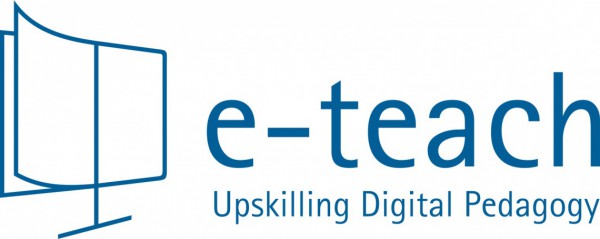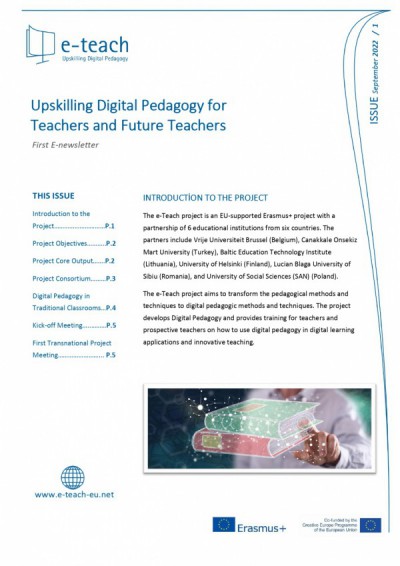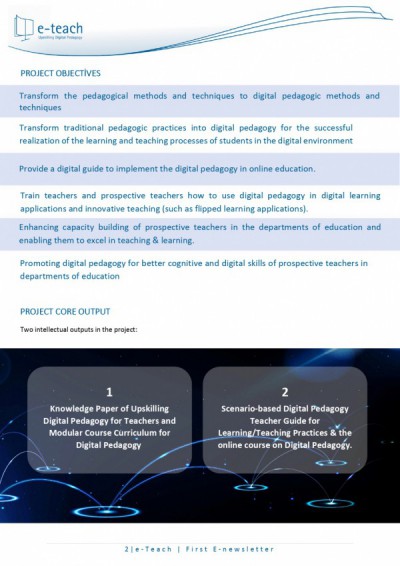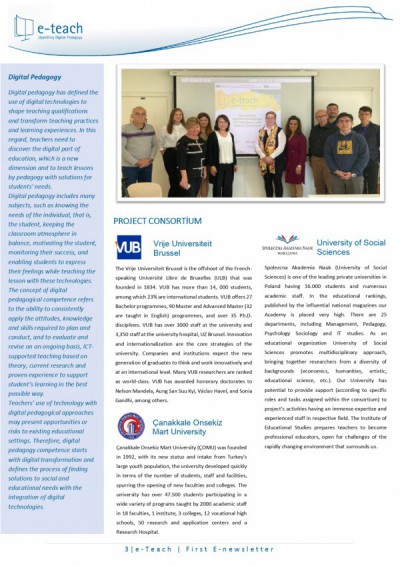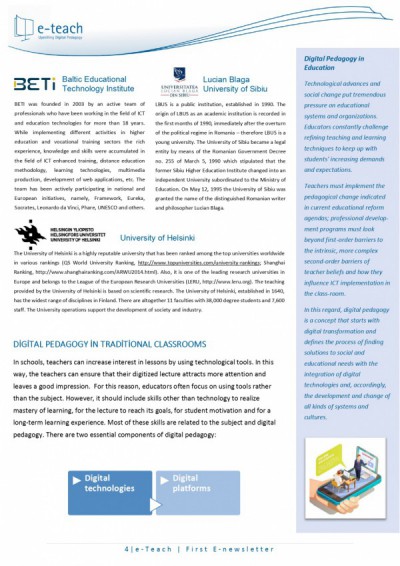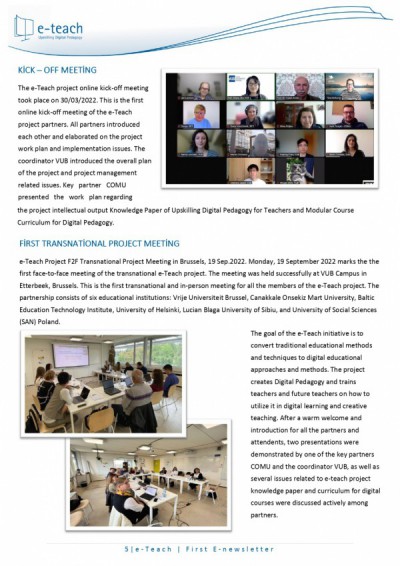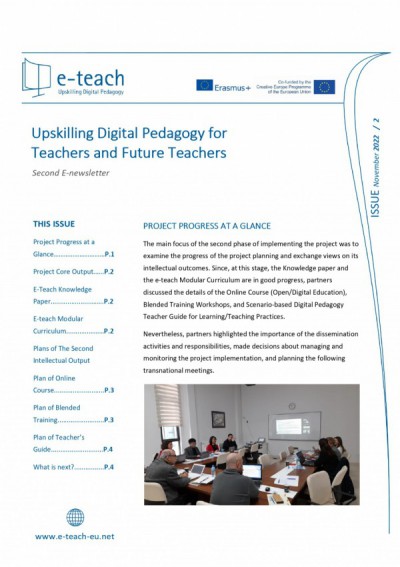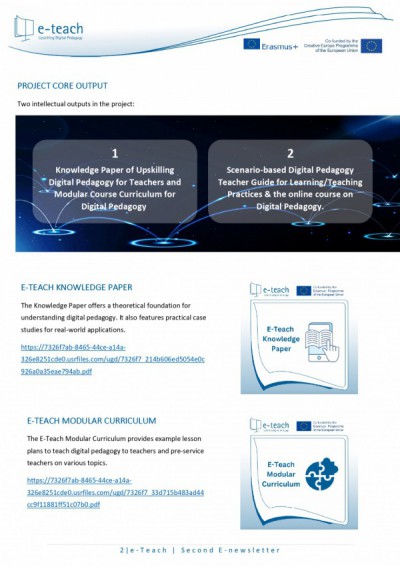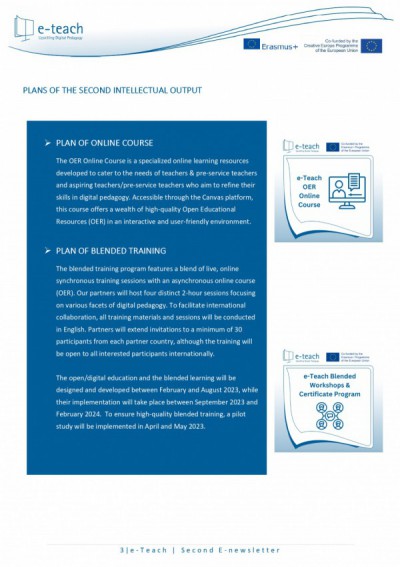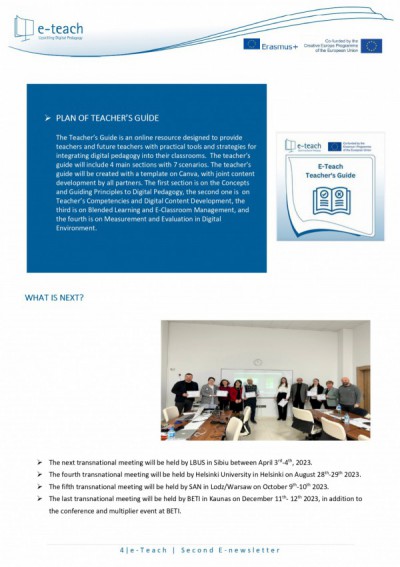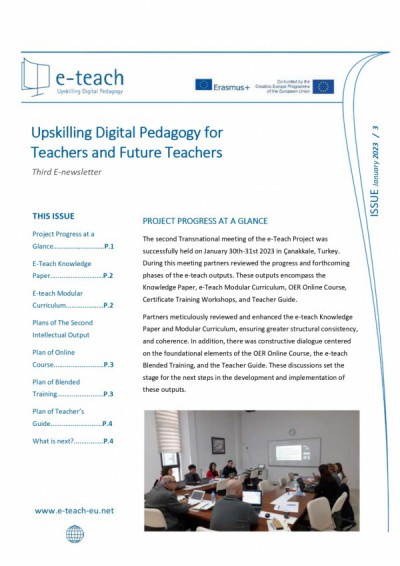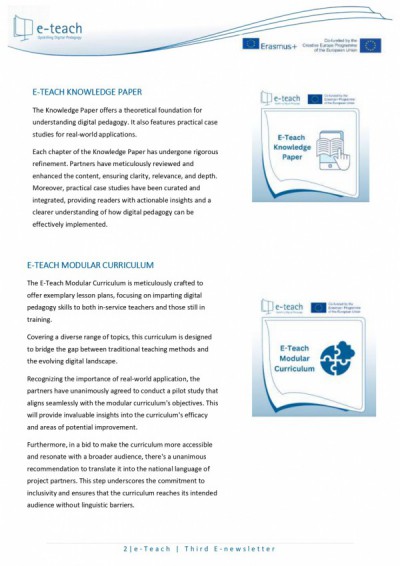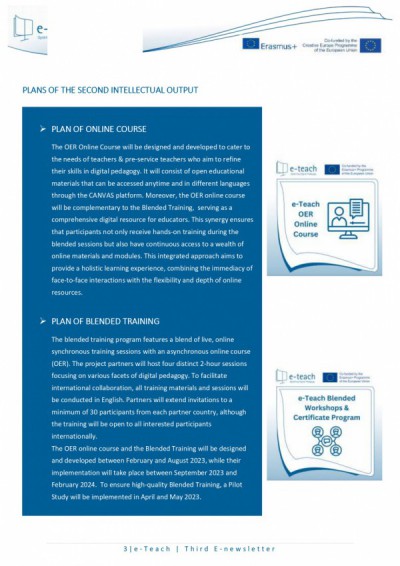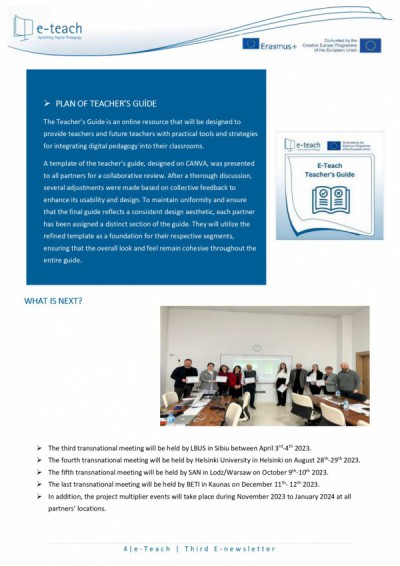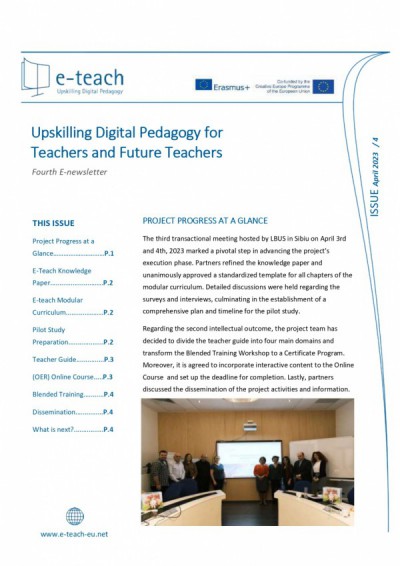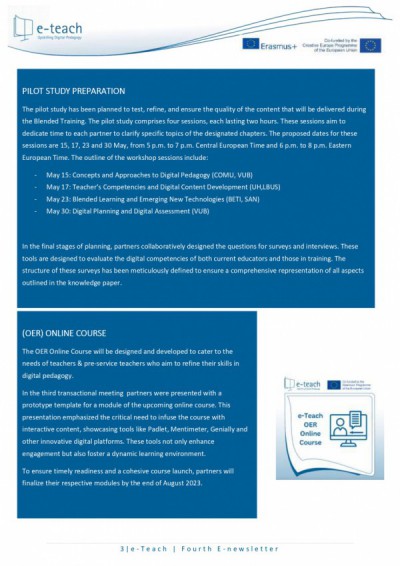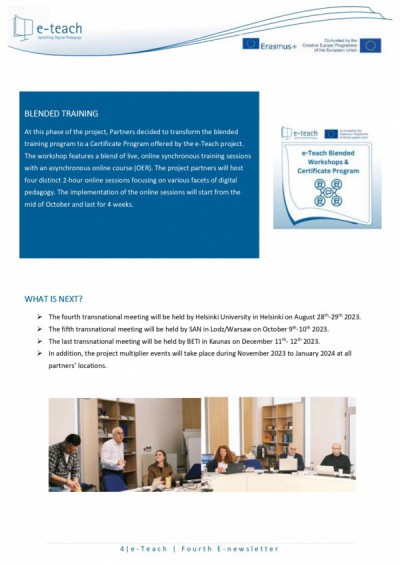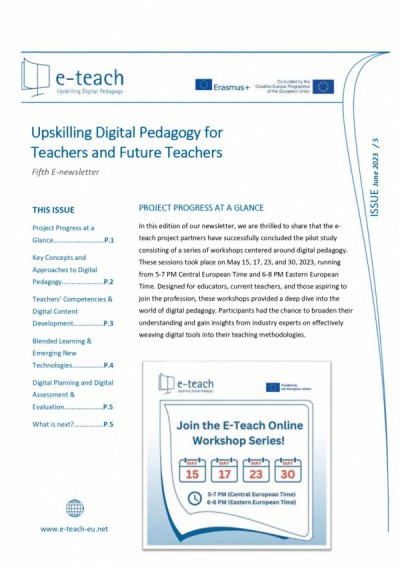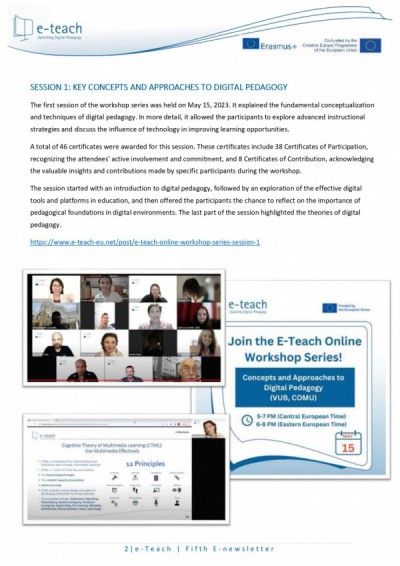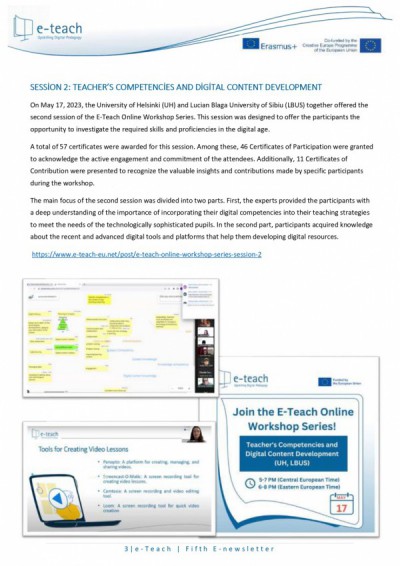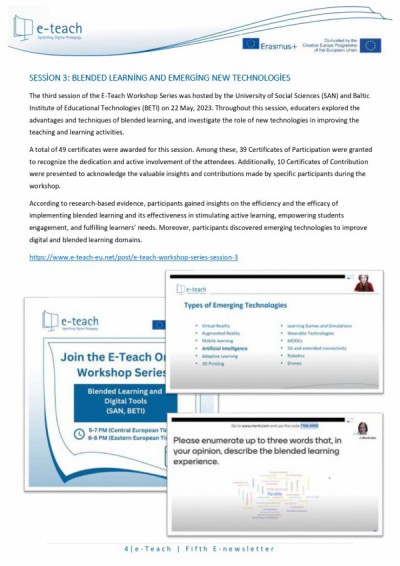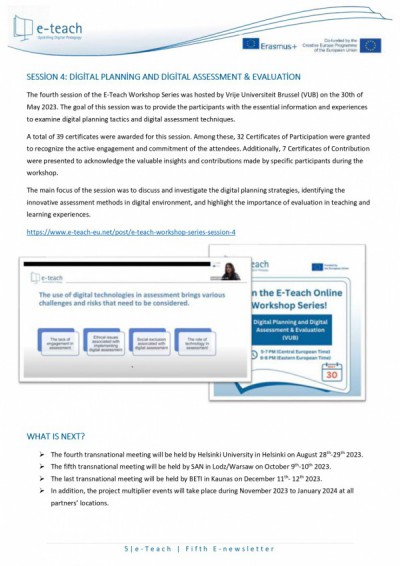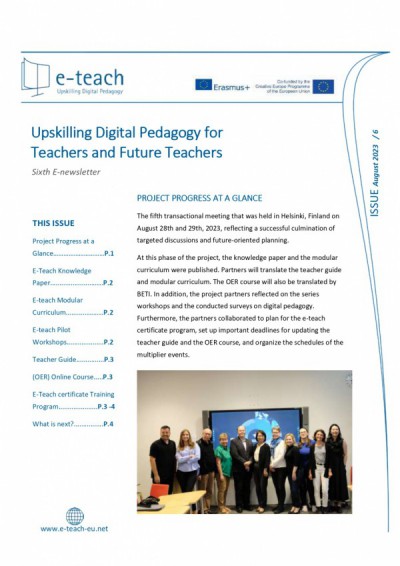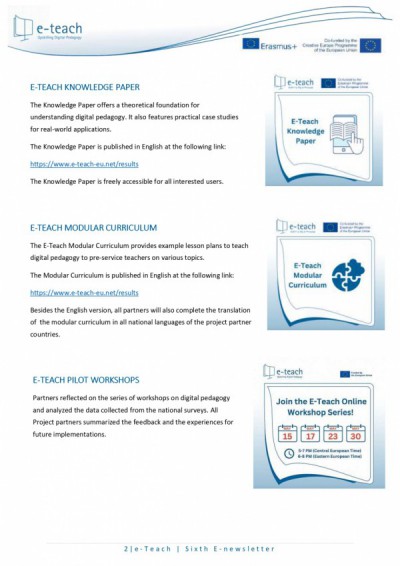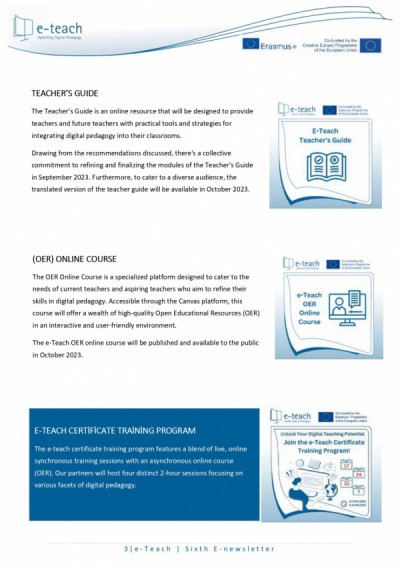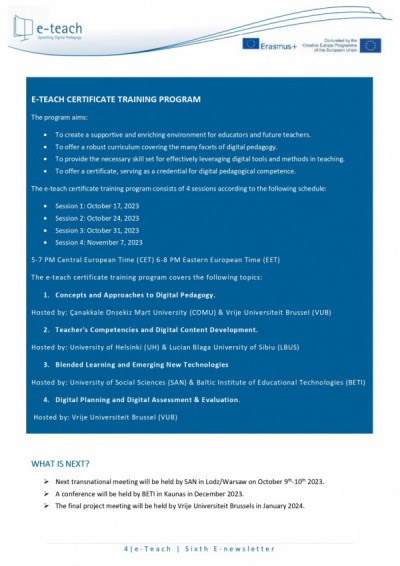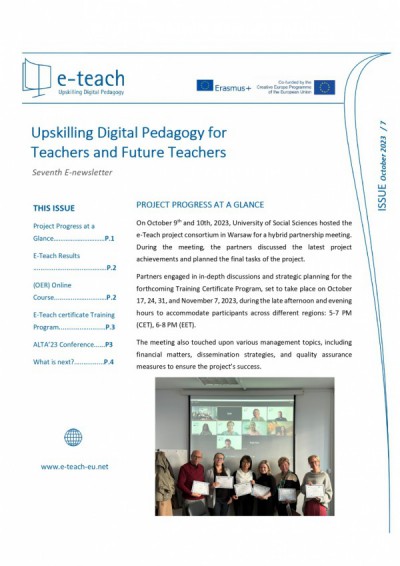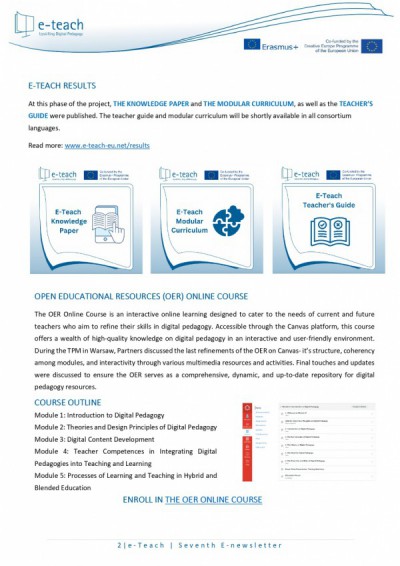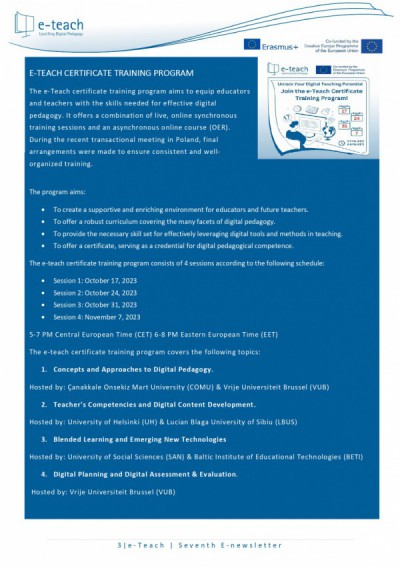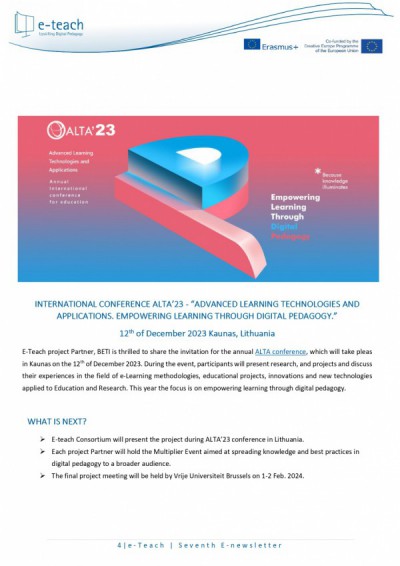e-Teach - Upskilling Digital Pedagogy for Teachers and Future Teachers
Although there have been rapid technological changes in the educational technologies, it has not achieved enough success in digital pedagogy. Because even if the application of technology to education was successful, pedagogic change could not be transformed from traditional approach to digital environment so it is necessary to transfer traditional pedagogic practices to digital pedagogic practices. New ‘Digital Pedagogies’ have emerged which have shifted the focus of teaching away from face-to-face physical (analogue) interaction, and towards an online, interactive, constructionist pedagogy, which can be led by the student, as much as the teacher. Digital pedagogy is not only about the technology but it is about the way we want to teach, and the way students want to learn, being facilitated by technology. In this respect, a curriculum is needed for prospective teachers at the departments of education which will meet digital teaching needs of prospective teachers and focus on the use and selection of the appropriate teaching methods and techniques. The rapid developments in science and technology reflected on educational technology, and the technology-supported education environment began. From time to time, technology was introduced to the center, and technology-centered training began to be provided, not technology-supported. Trainings on the development of digital skills started to be given to teachers and teacher candidates. In recent years, distance education and flipped education applications have become widespread. Due to the COVID-19 pandemic, distance education and flipped learning have begun to be applied to the entire system, becoming a necessity rather than a choice. Now, distance learning and flipped learning have become a part of education systems. Its importance and widespread use will increase day by day. Here universities fell behind in transferring face-to-face teaching pedagogy to distance education. In other words, classical pedagology practices lagged behind the progress in educational technology. Pedaogogic methods and techniques employed in the classroom environment were not transferred to the digital environment.
Duration:
28.02.2022 – 27.02.2024
More information about project:
International Cooperation and Projects Department (e-mail: international.projects@san.edu.pl)
This publication [communication] reflects the views only of the author, and the Commission cannot be held responsible for any use which may be made of the information contained therein.
Co-funded by the European Union. Views and opinions expressed are however those of the author(s) only and do not necessarily reflect those of the European Union or Fundacja Rozwoju Systemu Edukacji. Neither the European Union nor the granting authority can be held responsible for them.




